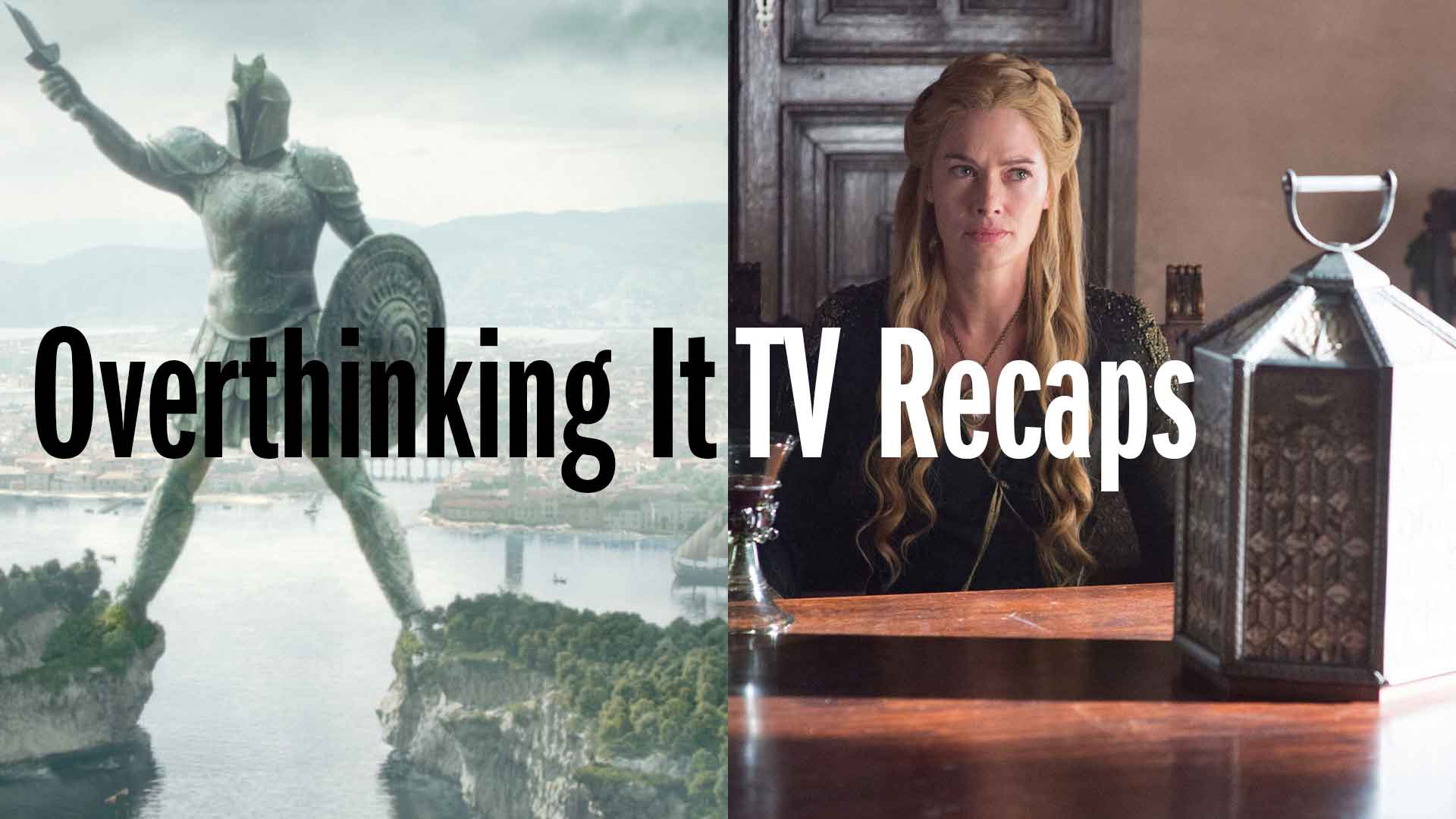Ben Adams, Rachel D, Peter Fenzel, John Perich, Ryan Sheely, Jordan Stokes and Matthew Wrather recap Game of Thrones Season 5 Episode 2, “The House of Black and White.”
[audio:http://podone.noxsolutions.com/launchpod/overthinkingitrecap/mp3/oti-recap-got-s05e02.mp3]Subscribe for The Latest Recaps
Subscribe to the TV Recap Podcast:
Subscribe on iTunes
Subscribe via RSS
What did you think of this episode? Sound off in the comments below.

A comparison I was surprised wasn’t brought up was Danny’s execution of the Meerenese adviser and Robb Stark’s execution of Lord Karstark. They committed the same crime, were advised to show mercy, and lost a lot of popular support for following through with the execution. I have read the books, but it has been a while, did this execution happen in Dance with Dragons as well?
Regarding the election at Castle Black, a fair amount of time was spent discussing how the democratic election of a new Lord Commander was an anomaly either in a political system or a military one.
However, the cast missed out on a third system to which the Night’s Watch belongs that is more closely associated with democratic principles. The full title for the organization is “The Brothers of the Nights Watch.” There’s a strong fraternal bent to the Night’s Watch, and fraternal organizations have traditionally permitted democratic processes in leadership selection long before contemporary political systems adopted the same.
Another way to look a the Night’s Watch is that they are a kind of “warrior monk.” In addition to the Septas/Septons and Maesters who are both monastic orders of a sort, the Night’s Watch also make vows of celibacy and not owning property (among other vows). There is precedent of religious orders of nuns and monks selecting their leaders or at least having a rotation of leaders selected by a high ranking group of usually elders. While there is not much of a precedent of voting in other parts of society for much of history, religious orders were in that sense much more progressive–perhaps the intentional quality of their living situation necessitated more buy in from its members.
The Superior General of the Order of the Jesuits is elected, and is jokingly referred to as the “Black Pope” because he dresses all in black.
http://en.wikipedia.org/wiki/Superior_General_of_the_Society_of_Jesus